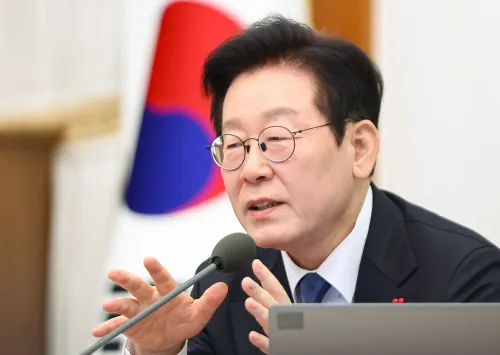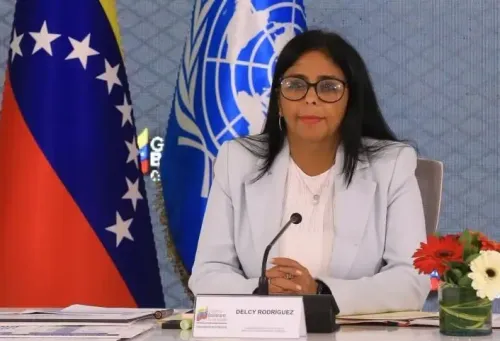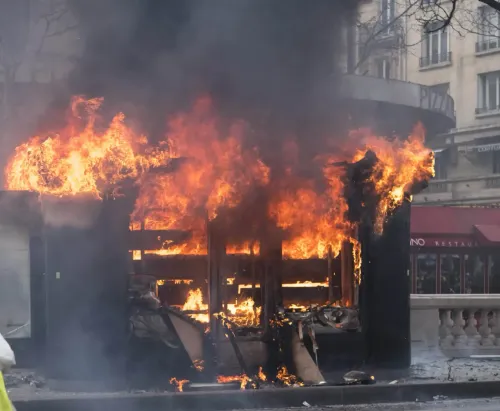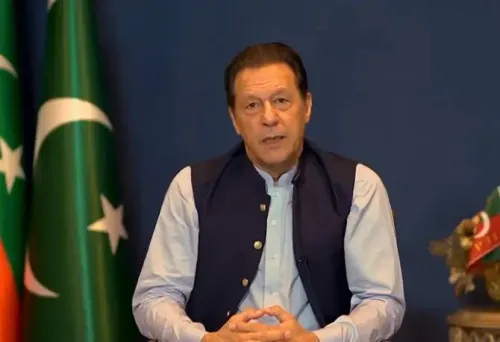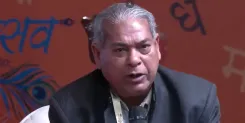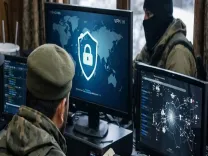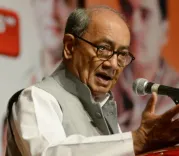Is the Safety of South Koreans in the Middle East the Most Important Concern After Israel's Attack on Iran?
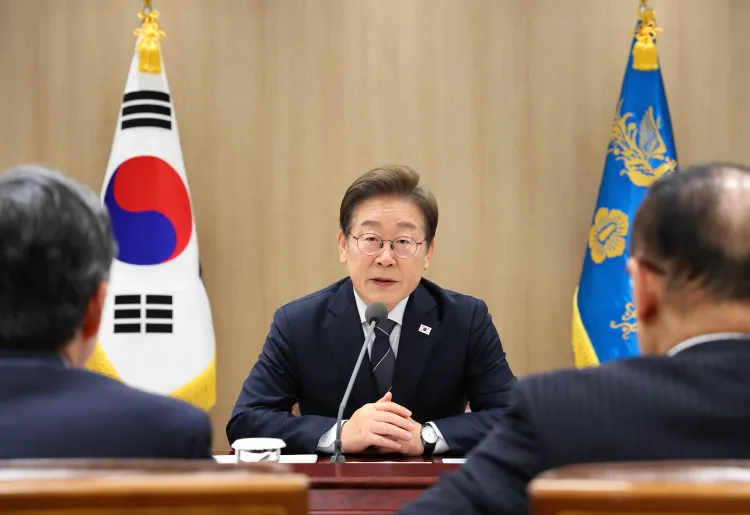
Synopsis
Key Takeaways
- Safety of South Koreans is the top priority for the government.
- Economic volatility is a concern in light of recent events.
- Israel has launched military operations against Iranian threats.
- Public calmness and government action are key to managing the situation.
- Iran has threatened retaliation if attacked.
Seoul, June 13 (NationPress) President Lee Jae-myung emphasized on Friday that the lives and safety of South Koreans residing in the Middle East are the utmost priority following Israel's recent strike on Iran. Lee's comments came during an emergency meeting dedicated to assessing the government's strategy in light of what Israel has described as a targeted operation against nuclear and missile installations in Tehran.
"We must thoroughly ascertain the status of our citizens in the region and evaluate whether any harm has occurred, alongside necessary measures to mitigate risks," he stated. “Our people's lives and safety are of paramount importance.”
In light of the turbulence affecting oil, currency, and stock markets post-attack, Lee observed that South Korea's economy seems to be transitioning from a stable phase to one of increased uncertainty.
"We must manage and supervise the situation diligently to prevent significant economic damage from external shocks," he remarked.
Lee urged the public to maintain composure while the government works swiftly to regain control, as reported by Yonhap news agency.
"Addressing economic and security challenges is the government's primary duty, and we will implement all necessary actions under any circumstances," he asserted.
Meanwhile, these attacks have intensified concerns regarding Tehran’s nuclear ambitions and their perceived threat to Israeli security.
In a broadcast statement, Israeli Prime Minister Benjamin Netanyahu confirmed that Israel had launched a “targeted military operation” to counter the Iranian threat to Israel’s survival.
“This operation will extend as long as necessary to eliminate the existential threat posed to us,” Netanyahu emphasized, highlighting the seriousness of the situation.
The offensive was corroborated by Israeli Defence Minister Israel Katz, who characterized it as a “preemptive strike” to dismantle immediate threats. To address the heightened risk, Katz also declared a special state of emergency throughout Israel for ensuring national readiness and civilian safety.
Meanwhile, Iranian state media reported hearing loud explosions in various areas of Tehran during early Friday morning.
IRIB, Iran's state broadcaster, indicated that the source of the explosions has not yet been officially confirmed, but speculation suggests that the Israeli strikes may have targeted military or nuclear facilities.
Earlier in the week, Iran's primary security body warned that its armed forces would promptly target Israel's “covert nuclear facilities” should the Islamic Republic face military aggression, citing claims of having obtained “sensitive Israeli intelligence.”


